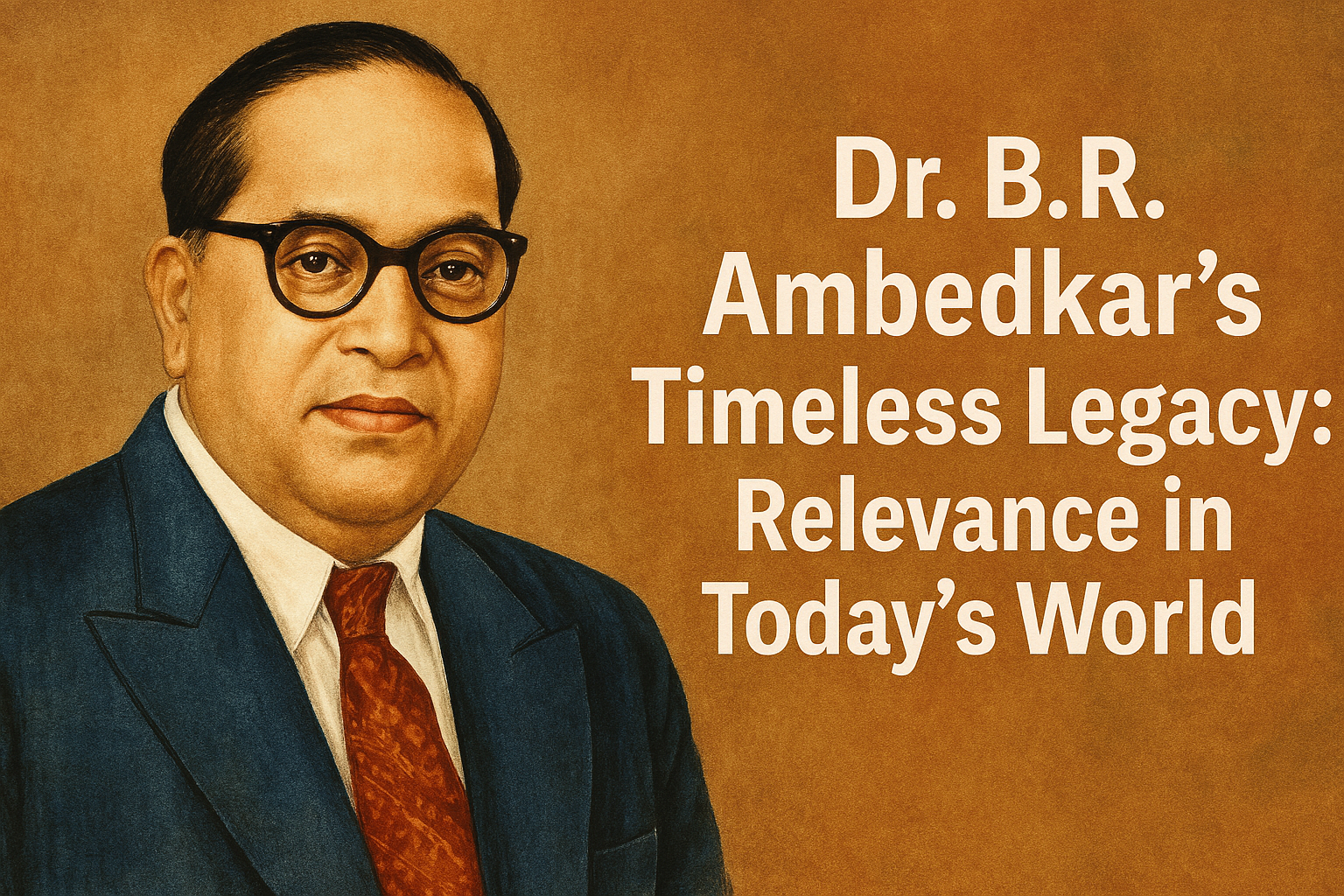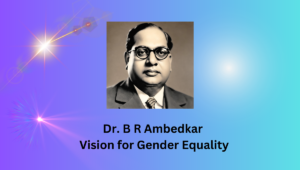|
Getting your Trinity Audio player ready...
|
Dr. B.R. Ambedkar’s Timeless Legacy: Relevance in Today’s World. Dr. Bhimrao Ramji Ambedkar, a visionary thinker, leader, and architect of India’s Constitution, continues to inspire generations globally. Ambedkar’s ideas transcend time, offering powerful solutions and insights into today’s complex political and social justice challenges. Amid rising inequality, intolerance, and democratic instability, revisiting Ambedkar’s teachings becomes crucial to building fair and inclusive societies.
Ambedkar’s Vision of Social Justice
Ambedkar tirelessly advocated social justice. His message was clear: equality must transcend mere legal provisions and become deeply embedded in society. Today, despite significant progress, social injustice persists worldwide. Economic disparity, racial discrimination, gender inequality, and caste-based oppression demand a renewed commitment to Ambedkar’s principles. Ambedkar emphasized education, empowerment, and social reforms as pathways to achieve genuine social equality, making his teachings critically relevant today.
Combating Casteism and Discrimination
Ambedkar famously stated, “If you believe in living a respectable life, you believe in self-help which is the best help.” He challenged deeply ingrained caste structures, advocating equality irrespective of birth. Globally, analogous issues of racial and ethnic discrimination resonate deeply with Ambedkar’s struggle against caste-based discrimination. Movements like Black Lives Matter echo Ambedkar’s fight for dignity and equal rights, underscoring the continued global relevance of his battle against institutionalized discrimination.
Empowerment Through Education
For Ambedkar, education was the ultimate tool for social transformation. He famously stated, “Cultivation of mind should be the ultimate aim of human existence.” Today, education remains a fundamental mechanism to fight poverty, inequality, and discrimination. However, educational disparities persist globally. Ambedkar’s emphasis on inclusive education policies that uplift marginalized communities continues to inspire contemporary educational reforms aimed at bridging the educational divide and fostering equitable opportunities.
Upholding Democracy and Constitutional Values
As the primary architect of India’s Constitution, Ambedkar championed democracy and individual liberties. His warnings against authoritarianism remain sharply relevant. Across the globe, democracy faces unprecedented challenges, including authoritarian tendencies, political polarization, and erosion of democratic institutions. Ambedkar’s commitment to constitutional morality, inclusive governance, and citizen-centric democracy provides critical lessons to preserve and strengthen democratic institutions globally.
Economic Equality and Inclusive Growth
Ambedkar strongly advocated economic equality, recognizing poverty and economic injustice as major barriers to social justice. He supported state interventions to ensure equitable wealth distribution and economic opportunities for disadvantaged communities. Today, global economic inequality continues to widen, making Ambedkar’s advocacy for inclusive growth and equitable economic policies more pertinent than ever. His economic thought encourages sustainable, inclusive development models benefiting all societal sections.
Women’s Rights and Gender Equality
Ambedkar was a fierce advocate for women’s rights, arguing that societal progress is impossible without gender equality. His efforts led to reforms ensuring equal rights and legal protections for women. Today, despite advancements, gender inequality remains pervasive worldwide, manifesting through wage gaps, limited political representation, and societal discrimination. Ambedkar’s advocacy for women’s empowerment remains profoundly relevant, inspiring contemporary movements and policies aimed at achieving genuine gender equality.
Fighting Intolerance and Promoting Unity
Ambedkar emphasized unity and warned against the dangers of social division and intolerance. In a world increasingly divided by religious, ethnic, and cultural differences, Ambedkar’s message of unity through mutual respect and understanding is critical. His teachings encourage societies to confront bigotry and intolerance, fostering inclusive environments that respect diversity. Ambedkar’s principles of solidarity and tolerance provide valuable guidance for overcoming contemporary challenges posed by global polarization and hate crimes.
Environmental and Sustainable Development
Although Ambedkar did not explicitly focus extensively on environmental issues, his emphasis on social and economic justice inherently aligns with modern principles of sustainable development. He advocated equitable access to resources and highlighted the need for ethical governance. Today, environmental degradation disproportionately affects marginalized communities, aligning Ambedkar’s calls for fairness and justice with contemporary demands for environmental sustainability and climate justice.
Conclusion: Ambedkar’s Vision for Future Generations
Dr. B.R. Ambedkar’s legacy provides timeless wisdom, guiding societies towards justice, equality, and democratic integrity. His vision remains critically relevant in addressing today’s complex global challenges. As we navigate modern struggles with inequality, discrimination, intolerance, and environmental degradation, embracing Ambedkar’s principles offers a roadmap for sustainable, inclusive progress. Future generations can draw strength from Ambedkar’s unwavering commitment to justice, equality, and human dignity, forging paths towards a fairer, more equitable world.



